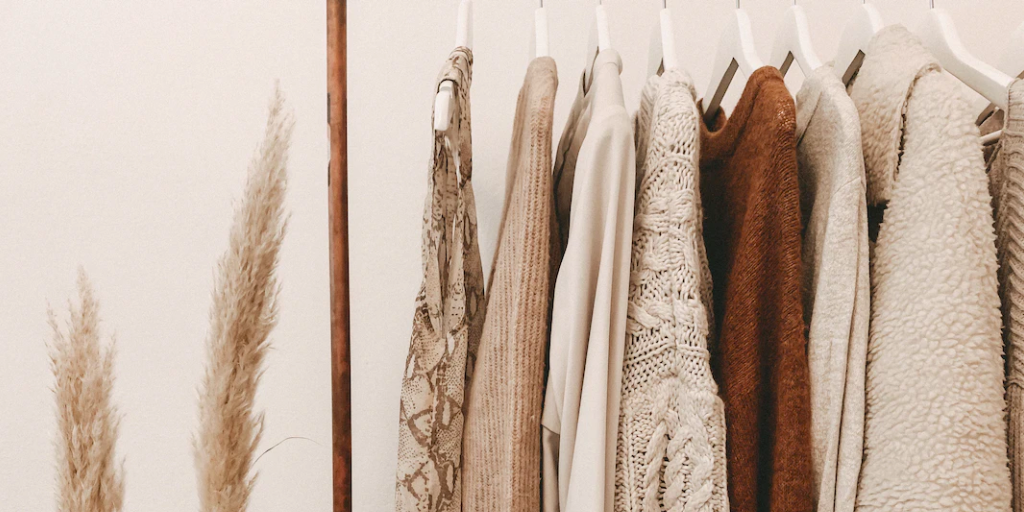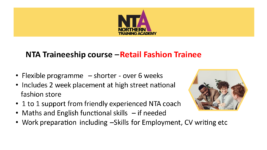Retail Buyer careers guide and job profile
Does getting to choose which products shops sell sound interesting? Why not explore a career as a Retail Buyer?
Getting into Retail Buyer careers
How much money can you earn as a Retail Buyer?
These LMI Job Trends give you a sneak peek of how much you could earn starting out for this career, and how much your salary could grow with experience.
Average salary for Retail jobs
Recent labour market information says you can earn on average between £16,000 and £50,000 a year as a Retail Buyer in the UK.
Your starting salary can vary because of factors like level of experience, training, location or the size of the company. Your salary as a Retail Buyer will increase over time as you build skills, knowledge, and experience.
Retail Career FAQs & Insights

Is there something you’d like to know about Retail careers?
Skills you need to become a Retail Buyer
Useful skills to put in your CV:
- Self-management skills – you’ll be working with lots of different suppliers as well as managing many different tasks, so being organised will help you stay on top of it all.
- Communication skills – you’ll need to be able to confidently put your point across to a wide variety of people. This includes written and verbal communication as well as public speaking and presentation skills.
- Teamwork skills – buyers need to work closely with a wide variety of people. You might be working with senior management, marketing teams, designers, merchandisers, shop floor staff, and more. A collaborative attitude is vital.
- Negotiation skills – you’ll need to negotiate deals on behalf of your company, so you must be a skilled and confident negotiator and not afraid to ask for the best deal.
- Money skills – you’ll have to work to a budget and justify all purchases. A good understanding of money and and finance is essential.
- Creativity – you’ll need to think outside the box and come up with plenty of fresh ideas!
- Be customer-focussed – retail is all about the customer. You’ll need to be positive and friendly, and generally love being around people. You’ll also need to put yourself in the shoes of your typical customer in order to work out what they want.
Top Skills-boosting Tip
Practice creating buyer personas. This is a description of someone who represents your target audience.
It can be useful knowing how to create these to really get into the mindset of your typical customer for a product and think about what they would want and buy.
How Do You Get These Skills?
Vocational qualifications and work experience will help you build these skills over time.

Build Your Skills With the FREE Young Professional Programme
What Qualifications & Training Do You Need For Retail Careers?
School, college and training
You could do a course at college to get some of the skills needed to work in retail. Examples are:
- Level 2 Certificate in Understanding Retail Operations
- Level 2 Diploma in Fashion Retail
- Level 3 Diploma in Retail Skills
A course may help you to get your first job. You could then move into buying as your experience grows.
Some companies in fashion retail offer training schemes specifically for buyers. These tend to be aimed at graduates. Other types of retailers offer general store management training schemes with the option to specialise in buying later on.
You can also take procurement and supply qualifications through the Chartered Institute of Purchasing & Supply.
BTECs
As an alternative to A-Levels, you can do BTECs from the age of 16. There are a number of BTEC subjects you might want to consider if you are interested in becoming a Retail Buyer. Courses available could include:
- BTEC Level 2 Technical Certificate in Retail Operations
- Level 2 BTEC Extended Certificate in Business and Retail
- BTEC Specialist Qualifications Retail Knowledge (L3)
Courses available can vary across schools, colleges and sixth forms and across training providers.
You’ll normally need 2 or more GCSEs at grades 9-3 (A*-D) or equivalent for a Level 2 or 3 course. If your qualifications are lower than this, you’ll most likely start on a Level 1 course.
University degrees and graduates
You can do a degree before joining a retail company graduate scheme. Employers recruit from a range of degree subjects. Some particularly relevant subjects include:
- marketing
- fashion buying and merchandising
- fashion and business
- retail business management
A degree with a work placement will help you gain valuable experience and may be an advantage when you look for work. You could also gain experience from a part-time job or a summer internship.
UCAS has more information on degree courses and entry requirements.
Apprenticeships
An apprenticeship is a scheme where you train while earning a starting salary. With an apprenticeship (or advanced apprenticeship) you’ll have a paid job with an employer that includes structured training and learning. This training leads to an official qualification that’s recognised by employers as an industry standard.
You could complete an apprenticeship related to buying such as:
- buyer and merchandiser higher apprenticeship
- assistant buyer and assistant merchandiser degree apprenticeship
You could complete an apprenticeship related to retail such as:
- retail team leader advanced apprenticeship
- retail manager higher apprenticeship
Anyone over 16 can study for an apprenticeship. You will normally need at least 5 GCSEs at grades 4-9 (A*-C) to study for an apprenticeship, including English and Maths.
A-Levels
A Levels are academic qualifications that come after GCSEs. A Levels can be an ideal stepping stone to an advanced apprenticeship, a degree, a job, or going straight into a freelance career.
Any A Levels relating to Business and Maths could be useful.
You’ll normally need GCSEs at grade 4 (C) or above in English and Maths. 2 to 3 relevant A levels, or equivalent, are usually required to complete a degree.
T-Levels
T-Levels are a choice for learners after GCSEs alongside apprenticeships and A-levels.
T Levels, an alternative to A-Levels, are qualifications in vocational, technical and hands-on subjects that you can choose to do after GCSEs instead of traditional academic qualifications.
They include a mixture of classroom-based learning and industry placements where you can put your new skills into practice in real-world scenarios.
T Levels in Accounting and Finance could be useful.
You may need 4 or 5 GCSEs at grades 9 to 4 (A* to C), or equivalent, including English and maths for T Levels.
Career Progression
Where your career could take you…
As you gain more experience you can move up to more senior roles such as Senior Buyer, Buying Controller or Head of Buying.
What Work Experience Do You Need For Retail Jobs?
Work Experience Tips
It can help you decide if this is the right career for you if you have previously done work experience in retail. Work experience in a retail environment can help you build useful skills.
Examples of relevant work experience include:
- Work shadowing (even if it’s just for a day)
- Work placements in a company
- Work experience placements on a college or university course
You can start as an assistant buyer and go on to become a junior buyer and work your way up. To go straight into a buying role, you’ll usually need a qualification in retail or business.
Volunteering Tips
Volunteering is always great on a CV because it shows employers you have the passion to make use of your time out of choice, not because you are forced to do it.
- It’s possible to get experience in retail on the shop-floor with supermarket chains or clothing retailers, in visual merchandising, or as an admin assistant in a buyer’s office. You can then spend time learning, doing training and getting qualifications on the job.
- Look for part-time or seasonal work (you could do shift work, a few days a week, or seek summer jobs when UK tourism is at its height)
- If you’ve had any previous jobs that gave you experience with checking stock, understanding customer needs or working with spreadsheets, this will help your CV stand out on the job seeking catwalk.
What Does A Retail Buyer Do?
Some example daily responsibilities include:
- Meeting with suppliers to see new products and negotiate deals.
- Attending events such as trade fairs to find new products.
- Negotiating prices, orders, discounts and deals – as well as details such as delivery dates.
- Keeping an eye on, and reacting to, what your competitors are doing.
- Working closely with team members including designers, marketing staff and merchandisers.
- Making and sticking to budgets
- Getting and analysing customer feedback
- Keeping up to date with trends, market news and important developments.
- Presenting your ideas or purchases to senior teams and management.
- Delivering training or information on new products to front-line staff.
- Tracking and analysing sales figures.
How To Find Retail Buyer Jobs: Next Steps
To find jobs for young people in this role, search on jobs boards for early career roles and opportunities with keywords such as:
- Retail buyer apprenticeship
- Trainee retail buyer
- Assistant retail buyer
You can take a look at our database of local opportunities to see if there are any relevant jobs, work placements, or careers events and workshops to help you get started. Create Your Future!
The Fashion Retail Academy is a good place to start if you’re looking for a retail buying apprenticeship. Or simply do a Google search for “buyer apprenticeship + (your city)”.
Get Into Retail Careers With Youth-Friendly Employers
These employers and organisations are here to help. They care about your potential and desire to learn, not just your qualifications and experience. They may be able to offer traineeships, apprenticeships, graduate schemes, first jobs, careers advice, wellbeing support and much more.
Retail Career Tips & Opportunities
Retail Career Guides
View job descriptions with average UK salary, useful qualifications and a variety of routes into this career.
See All Our Youth-Friendly Employers

























YES! I Want More Free Careers Help...
So what are you waiting for? Grab your future.



























